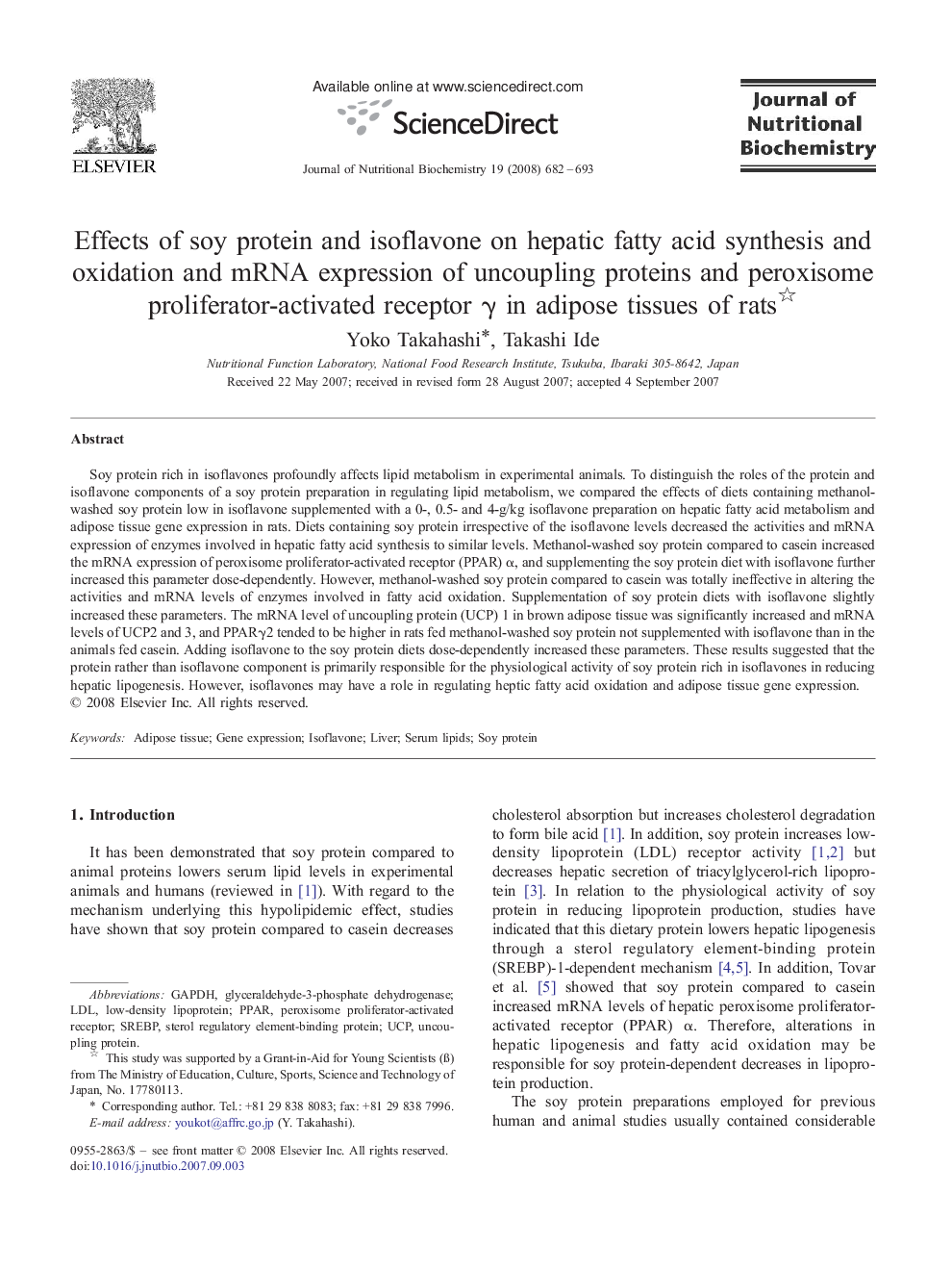| Article ID | Journal | Published Year | Pages | File Type |
|---|---|---|---|---|
| 1990463 | The Journal of Nutritional Biochemistry | 2008 | 12 Pages |
Soy protein rich in isoflavones profoundly affects lipid metabolism in experimental animals. To distinguish the roles of the protein and isoflavone components of a soy protein preparation in regulating lipid metabolism, we compared the effects of diets containing methanol-washed soy protein low in isoflavone supplemented with a 0-, 0.5- and 4-g/kg isoflavone preparation on hepatic fatty acid metabolism and adipose tissue gene expression in rats. Diets containing soy protein irrespective of the isoflavone levels decreased the activities and mRNA expression of enzymes involved in hepatic fatty acid synthesis to similar levels. Methanol-washed soy protein compared to casein increased the mRNA expression of peroxisome proliferator-activated receptor (PPAR) α, and supplementing the soy protein diet with isoflavone further increased this parameter dose-dependently. However, methanol-washed soy protein compared to casein was totally ineffective in altering the activities and mRNA levels of enzymes involved in fatty acid oxidation. Supplementation of soy protein diets with isoflavone slightly increased these parameters. The mRNA level of uncoupling protein (UCP) 1 in brown adipose tissue was significantly increased and mRNA levels of UCP2 and 3, and PPARγ2 tended to be higher in rats fed methanol-washed soy protein not supplemented with isoflavone than in the animals fed casein. Adding isoflavone to the soy protein diets dose-dependently increased these parameters. These results suggested that the protein rather than isoflavone component is primarily responsible for the physiological activity of soy protein rich in isoflavones in reducing hepatic lipogenesis. However, isoflavones may have a role in regulating heptic fatty acid oxidation and adipose tissue gene expression.
